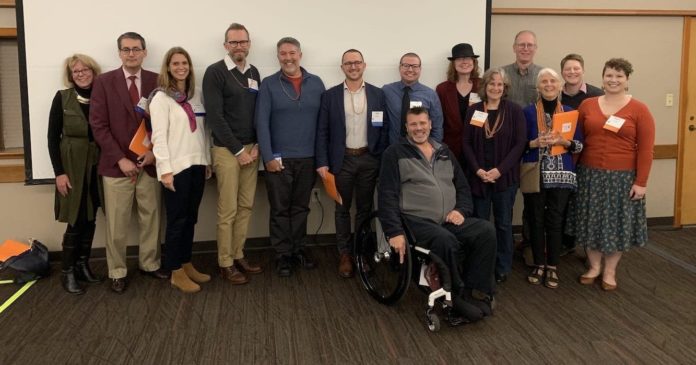With the passage of the Equitable Access to Credit Act, our state just made a major investment to provide more resources for Community Development Financial Institutions to help those in financial distress gain access to the funds they require for their disability needs.
We are just one of many Community Development Financial Institutions (CDFIs) in Washington. CDFIs are certified by the United States Treasury Department and serve targeted populations to responsibly allocate affordable loans and provide training and coaching to those who have difficulty attaining support from traditional financial institutions. CDFIs like mine are not depositories, so we rely on funds from sources like foundations, governments, and banks to provide our services and capital to borrowers.
This new program created by the Equitable Access to Credit Act will make it easier for young businesses to get off the ground and nonprofits to provide services in their communities. Looking ahead, the new grant program means that more people will be able to access technical services and keep interest rates low for loans in our state. Last year, Community Development Financial Institutions invested more than $115 million in individuals, businesses, and non-profits in Washington. Organizations like mine provided more than 8,000 hours in financial literacy training in Washington in 2021 so that our borrowers’ financial security can improve beyond just the payment of a single loan for a critical need.
In Clark County, the creation of this new program means that more people will have the ability to afford hearings aids, wheelchairs, accessible vehicles, and other critical assistive technologies. It will allow organizations like mine to help more people like Jane and her daughter Amelia, a wheelchair user who has muscular dystrophy, living in Vancouver.
Jane knew that she needed a new wheelchair accessible van when the ramp on their 22-year-old van broke last year. Jane applied to her bank for financing for a new van and learned that the bank would only finance the chassis of the van, not the modifications. But Jane knew that with her income as Amelia’s caregiver and with Amelia’s Social Security, she could afford a loan payment. The van dealer referred her to my organization, Northwest Access Fund.
As a nonprofit and a Community Development Financial Institution, we help fill in gaps in financing between those in need of financial services and the ability of traditional financial institutions, like banks and credit unions, to serve everyone. With a for-profit business model, most financial institutions have a risk tolerance and credit standards for lending that leaves many people with poor credit or medical debt without a financing option for their legitimate needs, including assistive technologies to help a person with a disability.
We have helped many people with disabilities in Clark County to afford the technologies they need to improve their quality of life and health. The financial strain of having a disability is significant – a household with a person with a disability requires 28% more income to achieve the same standard of living as a household without a disability. It’s not uncommon for those that we serve to put their basic needs on a credit card, to have gone through a bankruptcy or a disruption in employment. This makes many families unable to qualify for loans and vulnerable to predatory lenders.
The state legislature’s adoption of the Equitable Access to Credit Act creates a five-year grant program of up to $40 million as a new funding source for CDFIs, a significant step forward to ensure that more Washingtonians are included and able to bridge financing gaps.
As the funds in this new program become available, I am looking forward to getting more photos like we did from a local woman who used her loan to buy a pair of dentures. She got them in time for her daughter’s wedding and she said it was the first time she’d smiled in seven years. That’s not something that shows up in a traditional financial institution’s quarterly report, but it’s definitely one way that we measure success.
Emerson Sekins has served as the executive director of NW Access Fund since 2017, a Community Development Financial Institution providing services in Clark County that specializes in helping people with disabilities. NW Access Fund is a member of the Washington Community Investment Coalition, which represents 16 Community Development Financial Institutions across the state.










